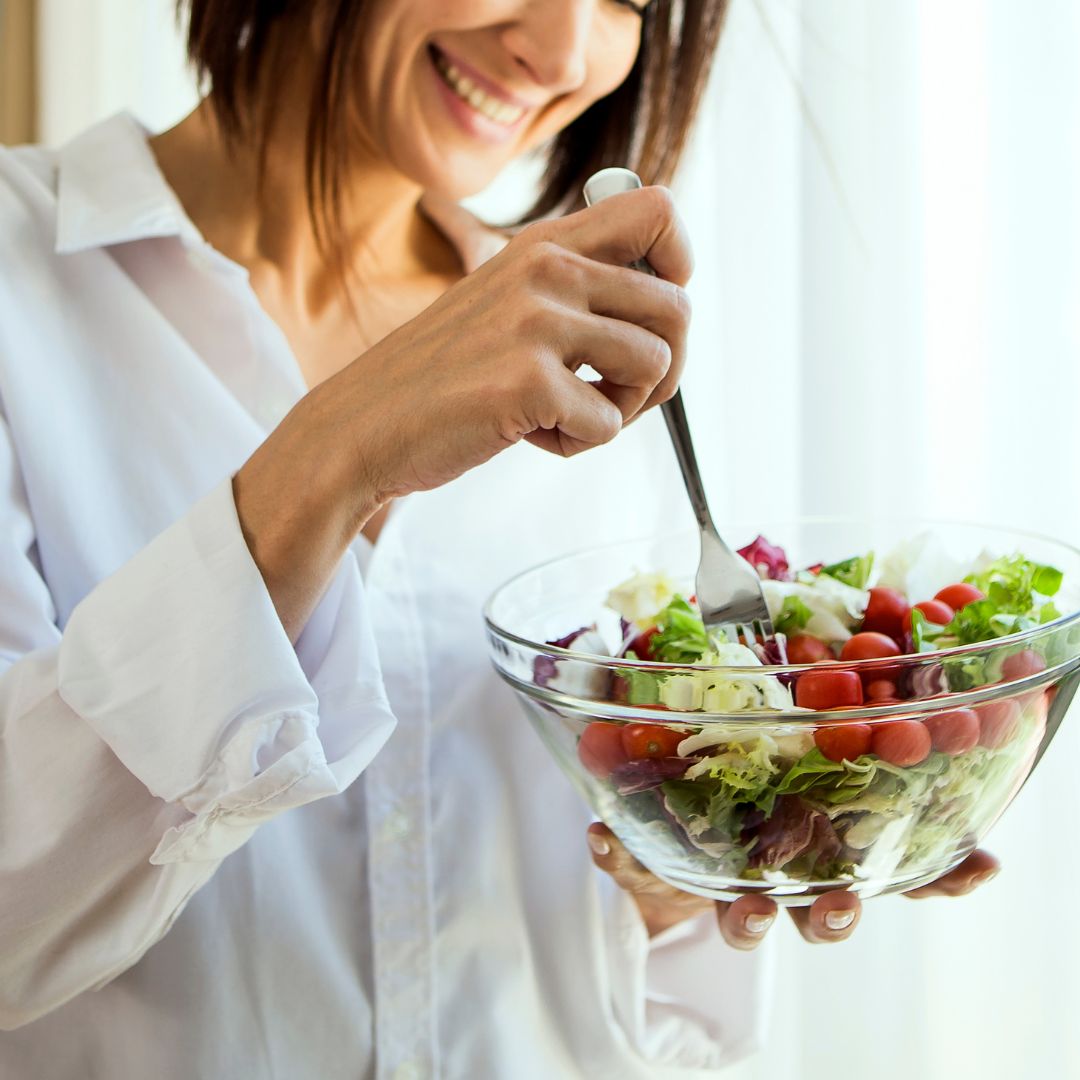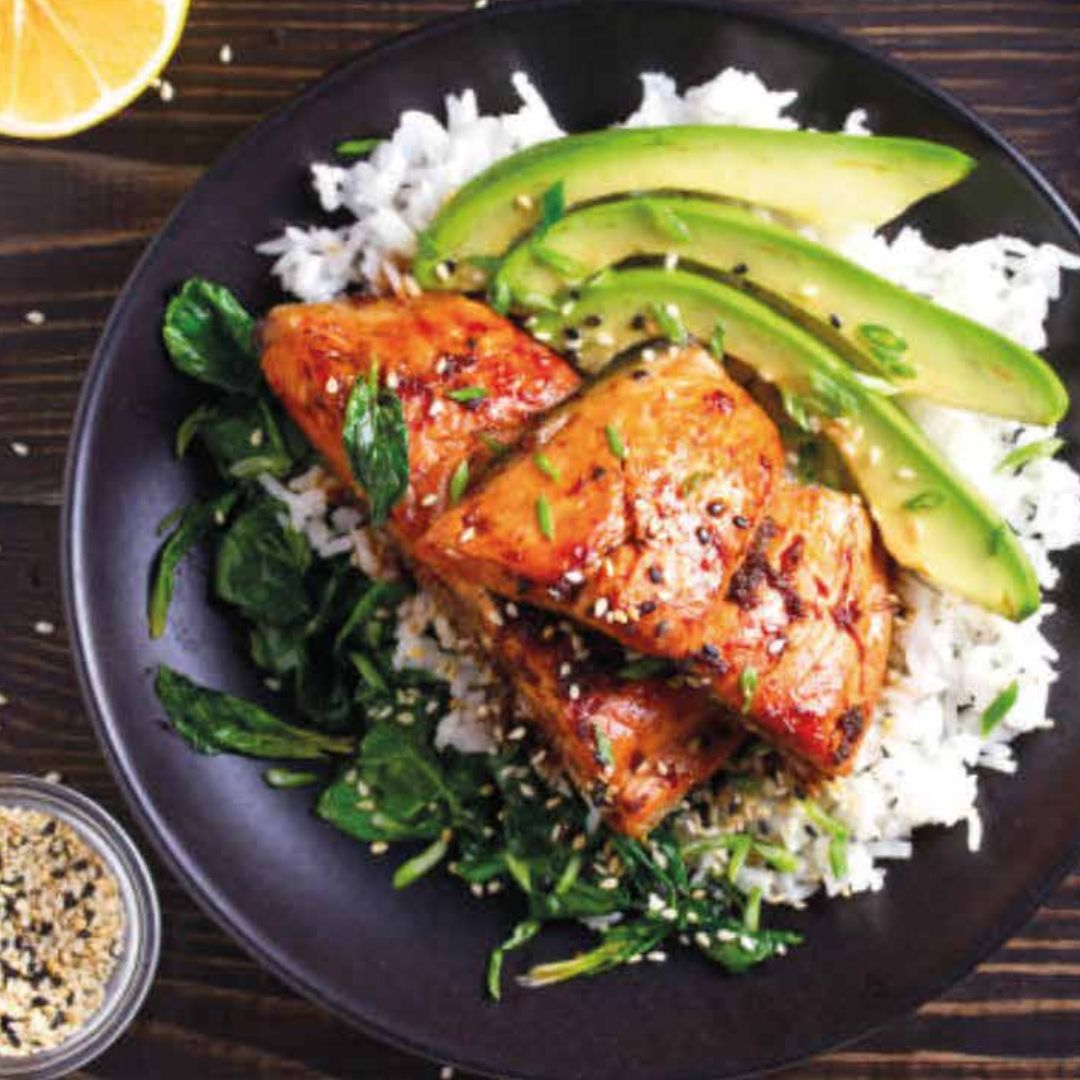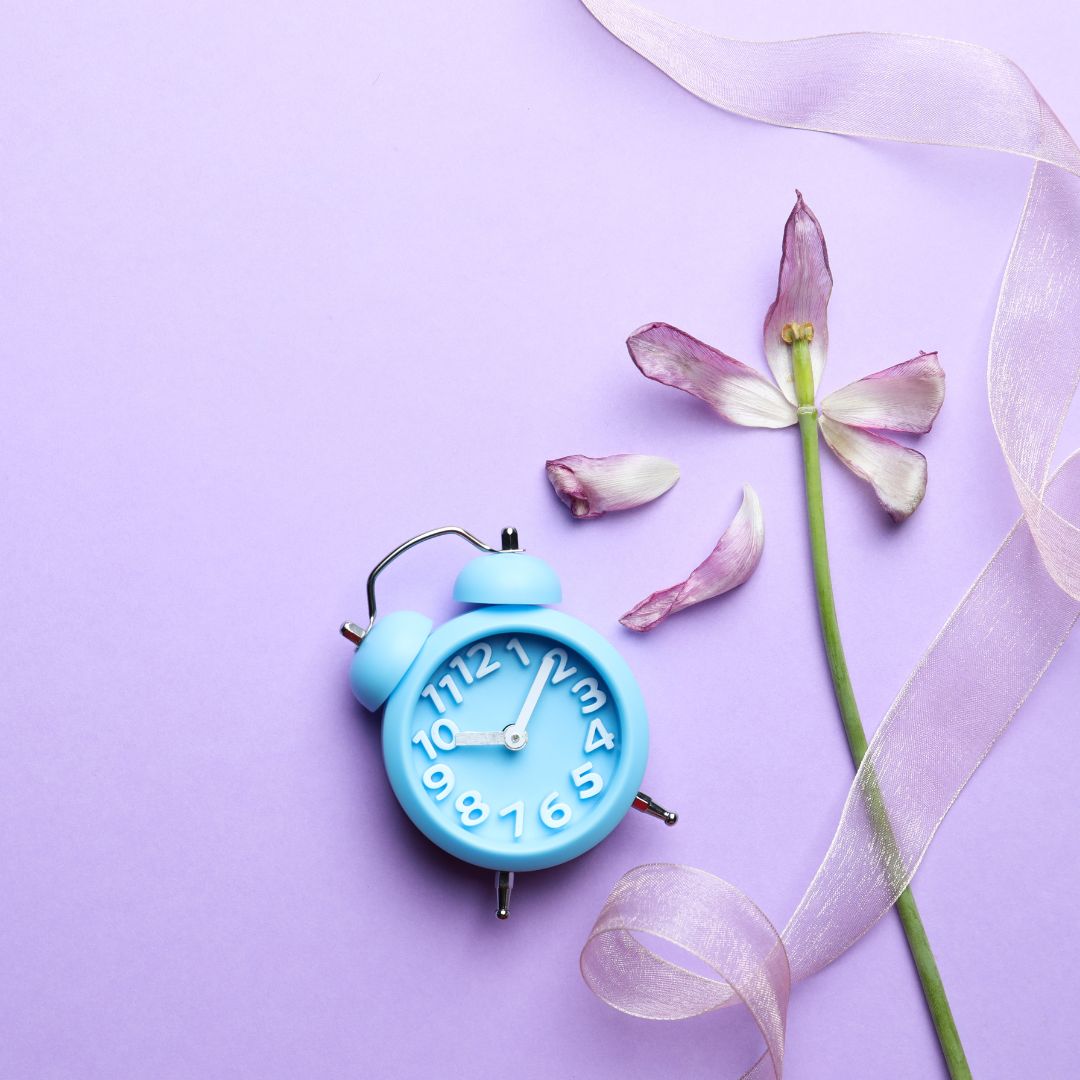
Prostate Care You Can’t Ignore
When you think about long-term health, prostate care often doesn’t come to mind until there’s an issue. Yet, the prostate plays a crucial role in men’s overall health and wellbeing so making sure it’s on your radar will be key to your (or your partner’s) long term health and happiness.
If you’ve even considered your prostate before, here’s what you need to know:
Common symptoms of BHP
Testing for BHP
You might have several different tests; some can be done at your doctor’s (like a blood test or a urine test). Others might need to be done at a hospital.
It’s likely your doctor will want to rule out some more serious conditions like prostate cancer.
The blood test is called the prostate-specific antigen (PSA) blood test. PSA is a protein made in the prostate and levels rise with the prostate gets enlarged - although levels can be affected by some illnesses or recent procedures/ surgery.
Dietary strategies for supporting prostate health
1. Balance your blood sugar levels
Eating the right balance of proteins, fibre and starches along with healthy fats has benefits for all aspects of your health. Every meal should contain a source of protein.
Choose wholegrain versions of foods like pasta, rice and bread to prevent blood sugars spiking, and fill your plate with veggies.
2. Eat more fruit and veg
A diet rich in plant-based foods provides essential vitamins, minerals, and antioxidants that protect the prostate.
Foods like tomatoes (rich in lycopene), broccoli, and green tea have all been linked to better prostate health. These nutrients help fight inflammation and reduce oxidative stress, which can contribute to prostate problems.
3. Don’t skimp on healthy fats
Not all fats are created equal and one type you’ll definitely want on the menu. Omega-3 fatty acids, found in fatty fish, like salmon and mackerel, plus walnuts and flax and chia seeds, help reduce inflammation and may lower the risk of prostate diseases.
At the same time, if you can cut back on saturated fats and processed foods, which promote inflammation, you can consider this a double win.
4. Eat foods that contain zinc
Like sesame and pumpkin seeds are naturally high in zinc, an important mineral that can be lacking in mean with prostate problems compared to those who don’t.
5. Limit alcohol and caffeine
Too much alcohol and caffeine can irritate the bladder and prostate, especially for men who are already dealing with urinary issues.
Moderation - or avoidance - is key to preventing these problems from worsening.
Lifestyle aspects
Keep an eye on your weight
Excess weight, especially around the midsection, can increase the risk of prostate problems - as well as a host of other midlife problems.
A balanced diet (like the Mediterranean-style diet described above and regular exercise will help you maintain a healthy weight and support prostate health.
Making movement matter
Regular exercise not only helps maintain a healthy weight, but it also supports prostate health.
Physical activity improves circulation and can reduce the risk of developing prostate problems. Aim for at least 150 minutes of moderate exercise per week.
Get regular check-ups
Even if you feel prostate issues aren’t a thing, do put it on your radar and be mindful of some of the symptoms. Early detection is crucial.
Make sure to schedule regular prostate screenings, especially if you’re over 50 or have a family history of prostate issues. Talking to your GP about any concerns will help catch any issues early on.
The food and lifestyle recommendations are great at any stage of life, not least midlife, so taking these on board regardless will stand you in good stead for the coming decades.
Uncomfortable truth: prostate problems are very common, and prostate cancer is on the up
Source: Prostate Cancer UK
Do you know that I also work with male clients? If you’re interested in a health check, why not get in touch. I offer free 30-minute health reviews and you can book in here.

Spotlight on Men’s Health
It's “Movember”, that time of year where normally clean-shaven men start sprouting moustaches – with varying degrees of success.
“Movember” is the leading charity for men’s health worldwide. Every year – in November – it raises awareness of men’s health issues by encouraging men to grow a moustache, move more for the 30 days of the month (at least) and run men’s health charity events at work and in their social circles. The charity funds research and education about men’s health issues, focussing primarily on suicide prevention, prostate and testicular cancer.
Suicide is the main cause of death for men and boys between the ages of 5 and 49 – a shocking and desperately sad statistics. Suicide was the main cause of death in boys and younger men even before the Coronavirus pandemic. The social isolation during the pandemic is making matters worse. 90 % of people who attempt or commit suicide have mental health problems.
More women than men suffer from depression, but women are more likely to talk about their issues and seek help. Men tend to bottle up their problems and negative feelings – until they can no longer cope. Movember is encouraging men to speak out and seek help.
The charity’s other focal subject is cancer, in particular prostate and testicular cancer. Although cancers affect both men and women, men are 60% more likely to get the disease and 70% more likely to die from cancer than women. There is much speculation about why that is.
The most common cancers in men are prostate, lung and colon cancer – in that order. The most common one – prostate cancer – is a cancer that women cannot get. Cervical cancer in women has declined due to improved screening. Screening for prostate cancer is not (yet) routinely done. One reason for that is that there is still some discussion about how useful the PSA (prostate specific antigen) reading actually is.
Throughout their life, women have a lot more contact with health professionals. Birth control, pregnancy, birth, child rearing and routine breast cancer and cervical screens means that they are in and out of doctors’ surgeries a lot more often than men as a matter of course. This reduces the reservations some may have about talking to medical professionals. It also offers ample opportunity to mention something they have been worried about. Stereotypically, men are more reluctant to make an appointment with a doctor.
The most common cause of death for men between the ages of 50 and 79, however, is still heart disease, an issue the charity does not seem to emphasise very much. The good news is that for males, the death rates from heart disease and stroke have reduced by about 50% since 2001.
The bad news is that the incidence of heart disease has barely changed. However, modern medicine has become much better at treating it, so that more people survive for longer. According to the British Heart foundation, 80% of people living with heart disease have at least one other health condition. It looks like in most cases that might be type 2 diabetes. A paper published in the European Heart Journal in 2015 found that 75% of patients with cardiovascular disease have abnormal blood sugar readings.
While deaths from heart disease and lung cancer in men have reduced by 50% and 30% respectively since 2001, there has been an increase in the death rate from Alzheimer’s and dementia of more than 60% and from liver disease by 12%. Alzheimer’s is also the leading cause of death in men over the age of 80.
Liver disease is almost entirely preventable. The most common causes are lifestyle-related: alcohol and obesity (together with hepatitis B, an infectious disease) account for 90% of cases. Alcohol is still the main reason for liver failure, but in recent years there has been a new version of liver disease: non-alcoholic fatty liver disease (NAFLD). At first, doctors often did not believe their patients when they said they didn’t drink – but presented with livers in a state of disease previously only seen in alcoholics. Now we know that something other than alcohol – sugar – can wreak just as much havoc on the liver as alcohol does.
As Alzheimer’s and dementia have been on the rise for decades, years of research have gone into finding out was causes it. Today, Alzheimer’s is referred to by some as “type 3 diabetes”, because here, too, blood sugar increases and insulin resistance has been observed. Although Alzheimer’s is known to have many contributing factors, there is no doubt that sugar is one of them.
The bottom line is that diet appears to play a major role in the leading causes of death among men. Diabetes promotes silent low-grade but long-term inflammation that damages blood vessels, nerves and liver cells. Even suicide, usually preceded by mental health issues, is not exclusively psychological. A healthy diet may not prevent all mental health problems all by itself, but a diet of ultra-processed food certainly promotes them.
So, if you are going to do just ONE thing to prolong your healthy lifespan it’s this:
Eat real food
Ultra-processed foods have been linked to cardiovascular disease, cancer, non-alcoholic liver disease, and neuro-degenerative diseases – which is code for Alzheimer’s and dementia. We’re not cut out to subsist on man-made food.
We evolved to eat natural foods: meat, fish, seafood, eggs, vegetables, fruit, nuts and seeds, herbs and spices. There is very little humans can do to improve on nature – except perhaps cooking (which allowed us to develop a bigger brain) and fermenting (which is not just a handy way to preserve food, but supports the gut).
If you are already eating real food or want to do TWO things to live a long and healthy life:
Cut out sugar and refined carbohydrates
Much of this will have left your life once you started eating real food, but there may be room for improvement. Sugar is detrimental, and all starchy carbohydrates (think bread, rice, pasta, potatoes) ultimately turn into sugar in the process of digestion.
How fast that happens and how much they will make your blood glucose rise depends on how processed they are. If you must have bread, pasta, and rice, go for the whole grain versions. Consider cutting them out altogether, because while there are essential fats and essential amino acids (the building blocks of protein), there are no essential carbohydrates. If you never eat pasta again, you’ll live. Probably a longer and healthier life to boot.
If you’re up for even more steps towards better performance, more energy and less bulge, book in for a free 30-minute men’s health review. You can do that by clicking here.

There’s been plenty of talk about HRT and menopause. But whether or not HRT is one for you, can nutrition and lifestyle changes really help you have a better menopause? As a Registered Nutritionist, this is something I work on every day in clinic with my clients. Here are five things I suggest that you can do to support your body right now.
Perimenopause is a significant journey in a woman’s life, bringing with it a variety of changes (and challenges) both physically and emotionally. These changes can feel overwhelming at times and, although social media is full of memes about how awful the transition to menopause is, the good news is that nutrition and lifestyle medicine can play a powerful role in helping you navigate this stage of life with greater ease.
Maintaining stable blood sugar levels is crucial during perimenopause. Fluctuating blood sugars can lead to energy crashes, mood swings, and increased cravings, all of which can make menopausal symptoms feel more intense.
How to balance blood sugars:
The Mediterranean diet is renowned for its health benefits for all kinds of ills and especially for women going through perimenopause. This diet emphasises whole foods that are rich in nutrients, antioxidants, and healthy fats, all of which can support hormonal balance and reduce inflammation (the latter also rises during this stage of your life).
Key components of the Mediterranean diet:
Phytoestrogens are plant-based compounds that can mimic the effects of oestrogen in the body, helping to balance hormone levels naturally during menopause. Including these in your diet may help reduce hot flushes and other menopausal symptoms.
Sources of phytoestrogens:
Your body in perimenopause is less resistant to stress so you will need to ensure you make stress relief important in your daily life rather than something you will add to your list of chores and get to it if you have time. Stress can exacerbate perimenopausal symptoms, so it’s important to find ways to counteract its effect.
Chronic stress can lead to hormone imbalances, sleep disturbances, and weight gain. When I say stress, this does not have to mean the ‘big stuff’ like bereavement, divorce or a house move. The relentlessness of day-to-day worries is just as important.
Stress relief techniques:
Sleep disturbances are common during perimenopause, but getting adequate rest is essential for overall health.
Poor sleep can worsen symptoms like mood swings, fatigue, and weight gain. It’s not just the amount of time you spend in bed that matters but the sleep you’re getting and the quality of your sleep.
The most restorative sleep is deep sleep, and you stand the greatest chance of getting more of this when you go to bed before midnight, according to The Sleep Foundation.
Tips for better sleep:
As you navigate perimenopause, remember that your body has unique needs, and small changes can make a big difference. Nutrition and lifestyle medicine can help support your body through this transition and improve your overall wellbeing.
Just as a little reminder, I’m a nutrition practitioner dedicated to supporting women through perimenopause and beyond. Come along to our Menopause Coffee Morning and join our community - see our events page for more details.

How to regain your sense of calm in perimenopause
Palpitations, a dry mouth, sweating, insomnia are just some of the unmistakable signs of anxiety. Everyone has experienced these symptoms at some point in their life. Who hasn't felt stage fright before a presentation, hyperventilated before an exam or spent a sleepless night before their dental appointment? But when we enter perimenopause, this is one of the most common symptoms that women suffer from – and it can be incapacitating.
So, where does nutrition come into it? At first glance, it may seem preposterous to say that diet influences how we feel; but think about it: In the cold, hard light of science, feelings are chemistry!
Of course, in the first instance, it is our environment, our experiences, and to an extent, our personality that makes us feel the way we feel. But our feelings of fear, anger, overwhelm or love and confidence trigger the release of hormones in our body, which is where chemistry kicks in.
We need the happy hormone serotonin and the pleasure hormone dopamine to feel good, the sleep hormone melatonin to sleep, the stress hormones adrenaline and cortisol for our get-up-and-go and to fight or flee when we’re under threat. Hormones work in unison with each other. Some hormones suppress others; some trigger the release of others. But for these feedback mechanisms to work, for our body to even be able to manufacture the chemicals that we need, we must supply the raw materials they are made of.
Those raw materials are fatty acids, proteins, vitamins, minerals, and phytonutrients – nutrients. What’s more, even our friendly gut bacteria contribute to how we feel by extracting more nutrients from our food for us, manufacturing some, such as short-chain fatty acids, from scratch and even providing some ready-made serotonin! So, if you think of feelings that way, what we eat is bound to have a massive impact on how we feel and how we cope with the challenges life throws at us.
Don't get me wrong; I’m not saying that diet will cure an anxiety disorder. However, if we try and fuel our body with poor quality food that does not provide the building blocks of the hormones and catalysts our brain chemistry requires, we’ll have a much harder time overcoming mental health issues.
So, what are these nutrients our body needs, particularly when we are anxious?
Magnesium is often referred to as ‘nature’s tranquiliser’ – which hints at just how crucial this mineral is for supporting balanced mood, relaxation and deep sleep. One reason why magnesium helps us cope with anxiety might be that it plays a role in nerve transmission. The mineral is not even hard to find. There’s some in most foods, particularly in green leafy vegetables – think broccoli, spinach, kale, and watercress – but also in grains, such as brown rice, buckwheat and quinoa, nuts and seeds, or fish and seafood. Despite this, deficiency is common, which may have something to do with our penchant for convenience and junk foods that are just not as nutritious as real food.
L-theanine – in a 2019 study found that this amino acid might help manage anxiety and support a balanced stress response. L-theanine is found in green tea. It increases the activity of the neurotransmitter GABA, which has calming, anti-anxiety effects. The amino acid also raises dopamine and the creation of alpha waves in the brain.
This is because l-theanine can cross the blood-brain barrier, a membrane that protects our brain from unwanted and harmful substances. The high intake of green tea by Buddhist monks may contribute to their famously calm demeanour and intense focus during meditation. If you want to give green tea a try, be sure to choose an organic one to reduce your exposure to pesticides and other toxins, which have been found to disrupt the brain’s stress circuitry.
Omega-3 fats - the authors of a 2020 research review agree that the role of nutrition in the management of mental health disorders is underestimated. They reviewed the existing research into in connection with anxiety and found that this type of fat is critical for brain health and has been shown to reduce anxiety symptoms.
As vegan diets are becoming more popular, it is important to note that omega-3 fats from plant sources, such as flaxseed oil or walnut oil, does not cover our daily requirements, let alone achieve therapeutic levels. The omega-3s these foods contain are inferior to the ones we need: EPA and DHA. Although the body can make those long-chain fatty acids can from plant-source omega-3 (alpha-linoleic acid or ALA), the conversion is sluggish and easily disrupted. Only about 5 per cent get converted. If you are vegan, do not like fish, or are allergic to it, your diet alone will cover your needs. I recommend finding a good-quality supplement with omega-3 from marine sources (i.e., algae), which is the only vegan source of DHA.
When talking about anxiety and nutrition, we must not neglect the role of the microbiota, the friendly bacteria in our gut. The majority of available research studies in 2019 showed that it is beneficial to give our gut bacteria some TLC. Interestingly, “non-probiotic interventions were more effective than the probiotic” ones.
That suggests that just popping a probiotic capsule may not be enough – and that’s no surprise, really. Don't get me wrong; probiotics are beneficial; there is no doubt about that. However, their contents – live bacteria, e. g. Lactobacillus and Bifidobacterium species – are not going to settle in the gut. They are only travelling through, and while doing so, they help create a bacteria-friendly climate and temporarily crowd out undesirable microbes. But really, they are only lending a helping hand to our own, indigenous bacteria. Those are the ones that are at home there, and those are the ones that can protect our gut, feed our brain, improve our mood, and keep us healthy.
You can look after your friendly bacteria by giving them real food, especially fibre-rich plant foods, including vegetables, fruit, nuts, seeds, pulses, whole grains, herbs, and spices. Variety is key here. While probiotics – especially in the form of fermented foods like sauerkraut, kimchi, live yoghurt, kefir and kombucha – are great, prebiotics – fibre – are even better. We still need to learn much more about all the different microbes living in our guts, but what we do know is that the more different species we have, the healthier we are. How do we cultivate a variety of species? By keeping our diets interesting! Different microbes have different preferences. By varying what we eat, we are creating a desirable place for them to live.
To keep everyone happy, it is also essential to avoid what harms the microbiota. Alcohol acts like a weedkiller on your internal garden. Food additives reduce a protective type of antibody called secretory immunoglobulin A (or sIgA, for short), and emulsifiers are particularly damaging for the gut. Sugar promotes yeast overgrowth, which can overwhelm the beneficial bacteria and make it difficult for them to adhere to the gut wall.
Of course, although hugely important, diet is not everything. Lifestyle factors, too, play a crucial role in mental health. It will come as no surprise that it is worth reducing stress as much possible if you suffer from anxiety. Interestingly, stress also damages the microbiota and interferes with the conversion of omega-3 fatty acids – among many other things, so just getting on top of stress will do you a whole lot of good.
I know that that is easier said than done, but there is a shedload of information on stress management on the internet, ranging from relaxation techniques, such as meditation or breathing exercises, to self-care and me-time tips.
So, as you can see, you don’t have to take anxiety attacks lying down. There is a lot that you can do to avoid them or to aid your recovery. And if you’d like to get in touch about a personalised programme, feel free to book a call.

Sesame Salmon
When we’re looking to balance hormones, what we put into our bodies is extremely important. This is an excellent recipe to choose – salmon is high in anti-inflammatory omega 3 fats; broccoli is a source of sulforaphane which helps with oestrogen clearance; and sesame seeds are rich in phytoestrogens. Plus, it’s quick and delicious!
Serves 2
Ingredients:
2 tsp olive oil
2 salmon fillets
6 spring onions, trimmed and cut into 3 pieces
12 cherry tomatoes
Black pepper
200g long-stemmed broccoli, trimmed
1 tbsp tamari
1 tsp sesame oil
½ tsp crushed chilli flakes (optional)
2 tsp sesame seeds
Method:

How to turn ‘not tonight’ into every night
(and 6 foods to get you in the mood)
Lost your mojo? One of the more common symptoms I see from clients in perimenopause is low libido. Here are some of my top tips to boost your sex drive and feel great in bed again.
It’s something I see a lot in clinic. For women, having sex is often far more complicated than just feeling “in the mood”. When we’re spinning so many plates (from children, work, partners and social life, not to mention caring for elderly parents and demanding PTAs), sex is often last on the ‘to-do’ list.
Throw into the mix low self-esteem, lack of body confidence, stress, relationship problems and hormonal issues, it’s no wonder that 57% of women say they prefer Facebook to sex.
Certain medication including anti-depressants, blood pressure drugs and even the Pill can also add to low libido. But after years of working with people who want to enjoy sex again, I can reveal the majority of low sex drive is due to misfiring hormones. The good news is resolving hormonal imbalances can help you get your mojo back!
Here’s how it works: when your hormones are out of whack, your libido takes a nose-dive. But when your menstrual cycle is working properly, the clinical changes in oestrogen levels mean you’ll have a few days a month when you feel naturally sexy (nature’s way of helping you get pregnant). So you’ll probably feel in the mood about 14 days before your period.
For women going through the transition to menopause (the five or so years run-up known as perimenopause), when oestrogen levels dip, your sex drive does, too. It doesn’t help that intercourse at this time can often feel uncomfortable – a massive passion killer.
Low libido can also be down to thyroid disease. If you have (or think you have) an underactive thyroid, this will all sound familiar. Synthetic thyroid hormone medication can resolve this, although it doesn’t work for everyone.
You can also try eating these six sexual energy-boosting foods to turn that ‘not tonight’ into every night…
BROCCOLI – eating this vitamin C-rich vegetable has been shown to boost circulation and sex drive.
WATERMELON – this contains lycopene, citrulline and beta-carotene, which relax blood vessels and creates a natural Viagra effect.
AVOCADOES – packed with nutritious goodies, including desire-boosting potassium and folic acid, which helps with stamina. They also contain vitamin B6, which research shows can decrease symptoms of premenstrual syndrome (such as fatigue, bloating and irritability). This might make it easier for you to feel “in the mood”.
EGGS – one of nature’s superfoods, bursting with B vitamins, including B6 that helps balance hormones and beat stress – which means you will be more in the mood.
STEAK – women who have a high sex drive often have higher levels of the ‘male’ hormone testosterone. So, fill up on steak – it’s rich in zinc, known to boost libido by blocking an enzyme that converts testosterone to the ‘female’ hormone oestrogen.
MACA - a libido-boosting herb from Peru that is proven to boost sex drive as well as fertility thanks to its high iodine and zinc levels. Research into maca has also found it can relieve symptoms associated with the perimenopause, including lack of vaginal lubrication and hot flushes. You can eat maca as a supplement in tablet form or in a powder, which you can add to cereal, soup, yoghurt or - my favourite - a smoothie.
Don’t just put up with a lack of libido – it’s a vital sign that things are not quite as they should be with your hormones. If you’re feeling that perimenopause is taking its toll, or you have other hormone issues, why not get in touch?
![]()
Please get in touch and find out more - I offer a free 30-minute exploratory call.